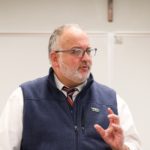Robert Spaemann describes education as an “introduction to reality.” As such, education is always about more than education, and every conception of education is enmeshed in judgments about the nature of the reality that education seeks to discover and in which it takes place.
This course will reflect on the nature and meaning of education, both secular and Catholic, and their contemporary state of crisis by exploring the relationship between different historical conceptions of the educational task and four types of judgments that are always at least tacitly operative within these conceptions: theological judgments about the nature of God (irrespective of whether his existence is believed); natural philosophical judgments about the meaning of nature and the science that would know it adequately; anthropological judgments about the nature and end of the human being; and political judgments about the sort of polity conducive to this end. In pursuing this path, the course hopes to lay a foundation for renewed thinking about the meaning of Catholic education in our historical moment.
